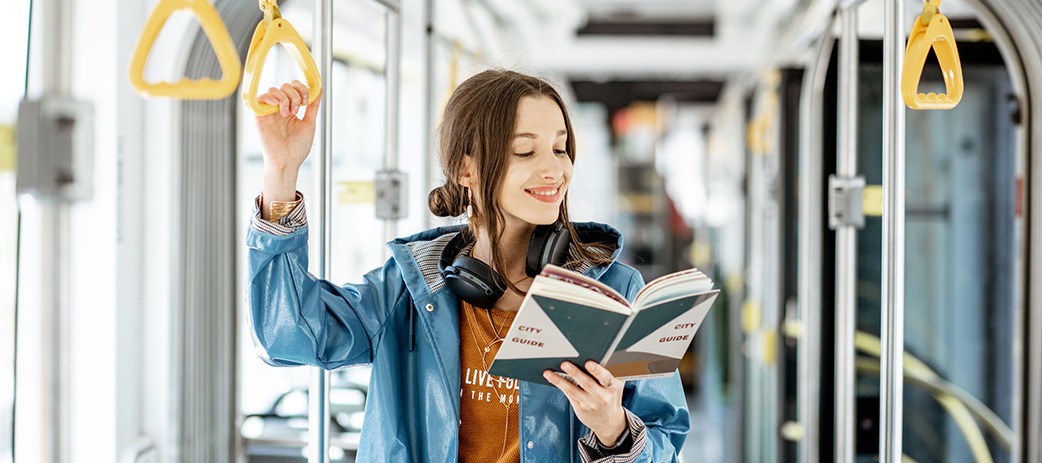What do road trips, lift clubs, minibus taxis, Uber, public transport and carpooling have in common? People in vehicles, together. With reports from LiveScience of the novel Coronavirus sitting at an average death ratio of 9% globally, shared transport has dropped dramatically.
While lockdown is being gradually lifted in some countries that have managed to control the spread of the virus by sheltering at home and reducing everyday human contact, until we have a treatment or a vaccine, social distancing is likely to be the norm. Medication can take a long time to test adequately and to be made available, and even if we found a vaccine today, the "time to get a COVID-19 vaccine to market is likely to be at least 18 months," the World Economic Forum reports. But it is not easy to maintain a definitive social distance in a bus, is it?
So the question looms: is commuting dead? Are road trips the new Contiki Tours? Contiki Tours is a popular tour brand for travellers who like to explore new destinations in a group. One of the modes of world discovery they offer is cruise ships, a form of travel that has recently come to a standstill during the Coronavirus pandemic. Cruise ships keep people in very close proximity to each other, making them dishes for viruses that spread rapidly through human contact or proximity. CNBC reports that COVID-19 has brought "the entire cruise-line industry to its knees". A Florida travel agent told the news channel in a dedicated, recent article that “this is like a travel apocalypse”. While the industry may bounce back once we have the virus under control, and new measures are in place to ensure less contact in such situations, it's debatable whether rideshare or commuting will ever be the same again. Maybe it's time to rethink the road trip.
Privately-owned driverless cars could be one solution to getting around more safely, but the industry is in its infancy. The rollout of such autonomous vehicles is slowed by regulations and the evolution of the software that - ahem - drives them (and sometimes drives into pedestrians). In addition to the training wheels regularly falling off, Forbes contributor, Rudy Salo, points out that there are also key “tweaks” that are needed to our infrastructure to maximize the safety and efficiency of driverless cars to ensure they are connected to other driverless cars, road infrastructure, and their own designated lanes away from “human drivers". As the smart city is not yet a reality for most urban centres, it's encouraging to consider that the impact of the virus on transportation may encourage more investment in such technology and speed up its rollout and adoption.
And, of course, post-lockdown, more people will likely be working remotely, but not every job can be done at home.
If you need to travel with others in the same vehicle, we invite you to practise these safety measures strictly:
- Wear a mask (or make yourself). Ensure that you have more than one mask so you can wash worn masks daily. Remember to wash and then hang your mask up to sun-dry in the open air away from people, between outings.
- Wash your hands with soap and water. Often. Or, as often as you possibly can.
- Don't touch. It's hard if you're clambering in and out of a minibus, or your eye is itchy, but the less you touch personal orifices, and other surfaces and people, the safer we all are.
Other creative options for getting there or going "away":
Crazy times call for clever solutions. The road trip, ride to work, school or the vet may look really different going forward, but there's no reason you can't still hang out and get about #alonetogether once lockdown restrictions been lifted.
- Maybe peace-loving bicycle gangs will be a thing again. Remember when you were 5 and screeched around your cul-de-sac with your buddies on bicycles and tricycles, fairy wheels and all? That kind of gang, but maintaining social distance, and maybe with a home-charged, e-scooter or e-bike that only you touch. Micromobility might see a rise in popularity and would encourage more infrastructural adjustments. If you go old school pedal and chain, or use a hybrid (where you cycle on the flat and have a battery for hills), cycling is great for fitness and toning. It means you can work on your six-pack. It also means you might arrive at work drenched in sweat or rain.
- Rethink the road trip by trying virtual reality hangouts with your friends. Nobody is in the same room; you still interact with each other's virtual projections. It however requires a good internet connection, and specific hardware like a VR headset; might be cheaper to invest in your own car. Come again? Yes, because we might all be driving separately going forward. For this, you need your own car.
Want cover for your car at a price you choose? With dotsure.co.za you can Name Your Price™ and get an instant, online quote. Simply follow this link for a free online car insurance quote.
P.S. want info about Corona, not cars? Try the South African government's 24-hour hotline: 0800 029 999 or the Coronavirus (COVID-19) WhatsApp Number: 0600 12 3456.
Step 1: Save the WhatsApp number on your mobile.
Step 2: Start a WhatsApp chat. The word "Hi" will kick off your conversation.
Step 3: Start chatting.
Read more



